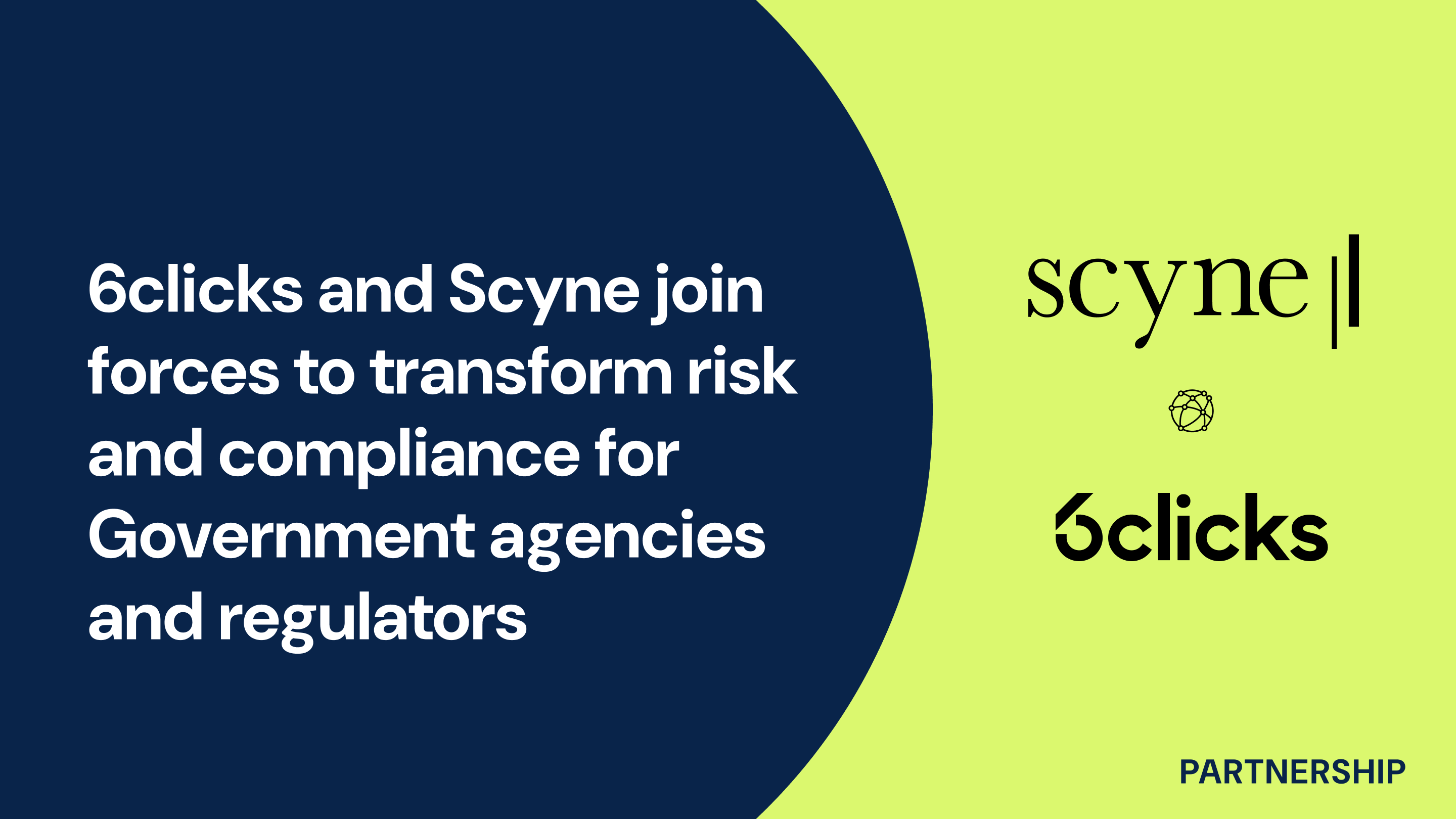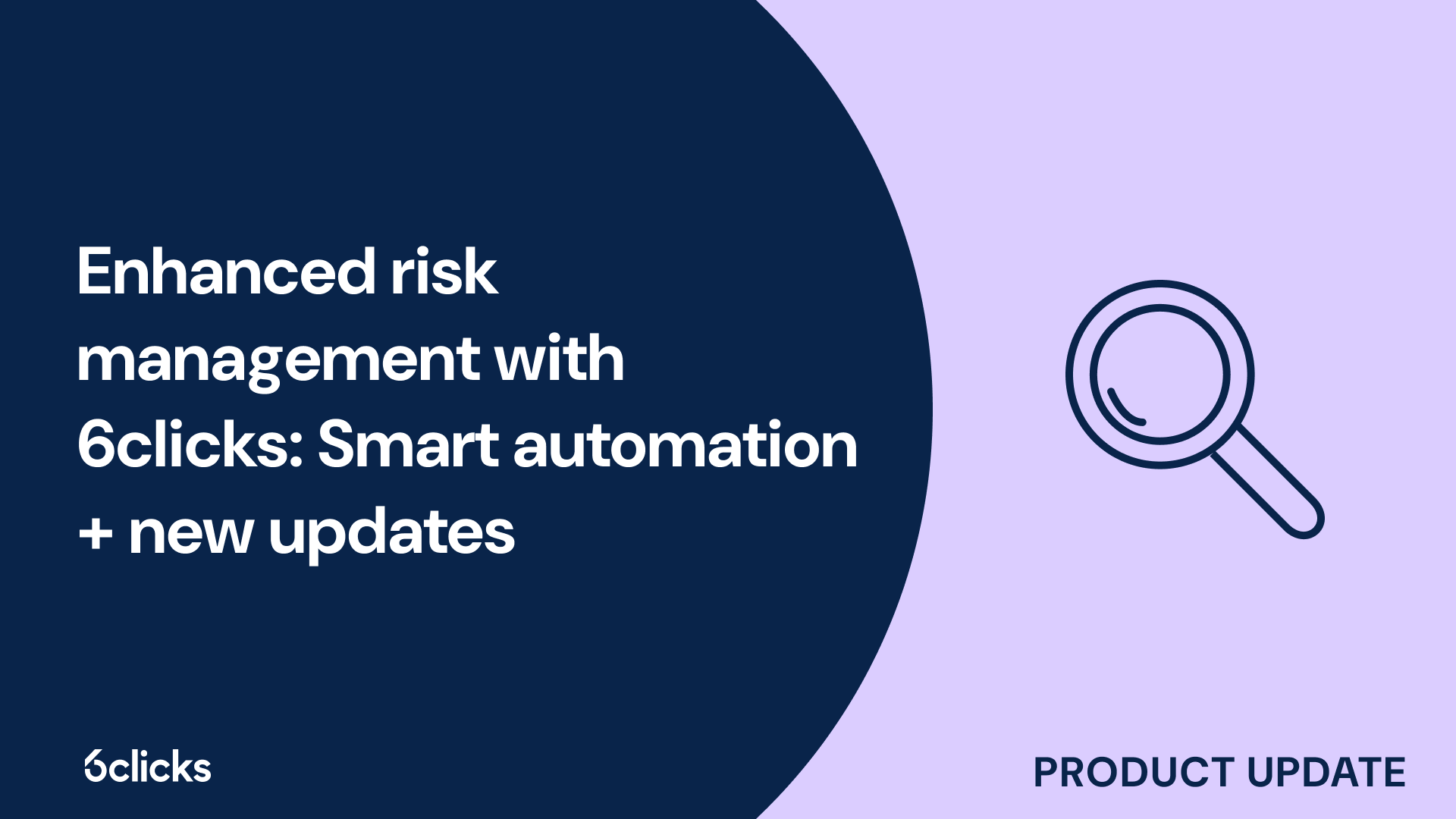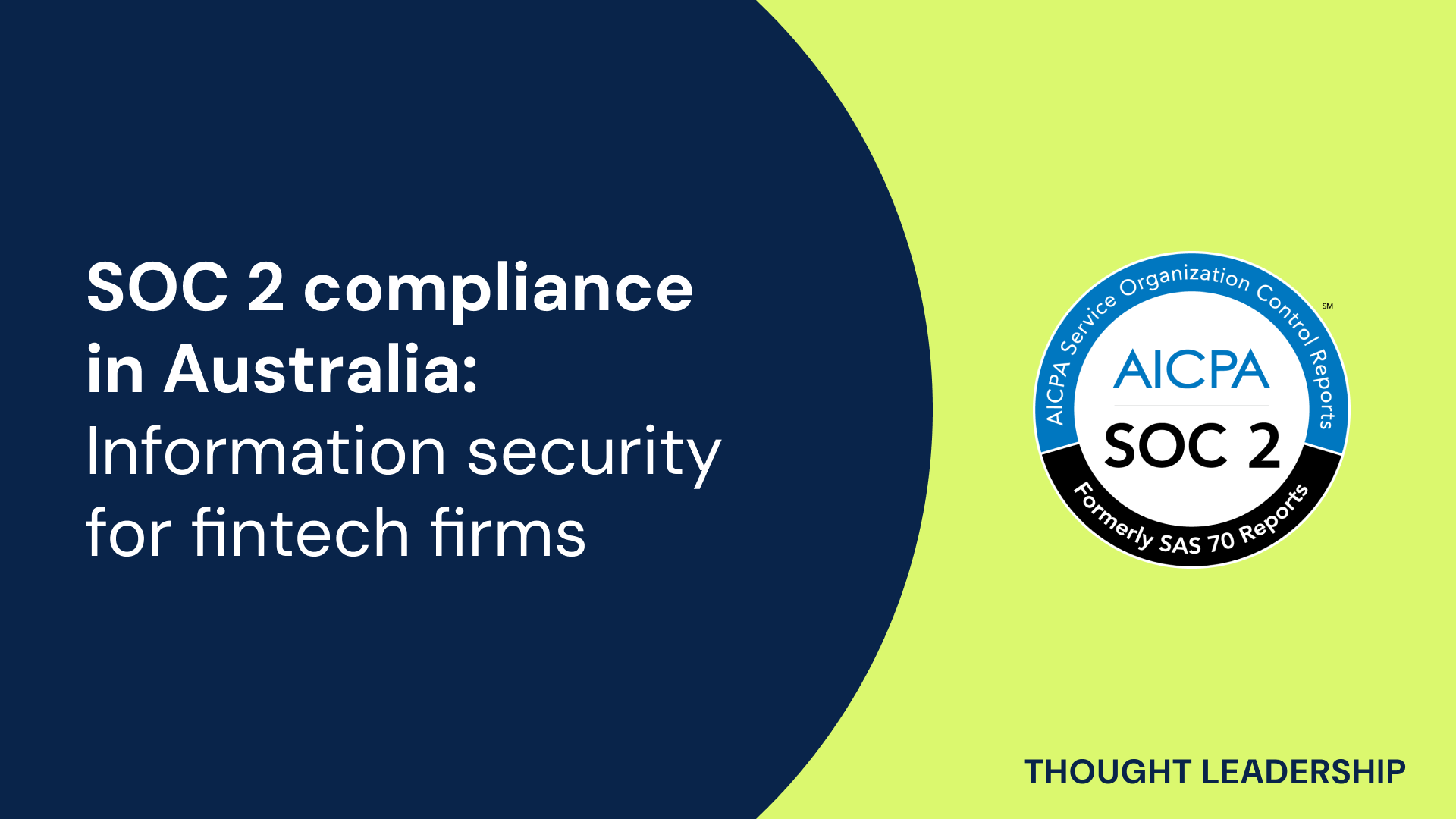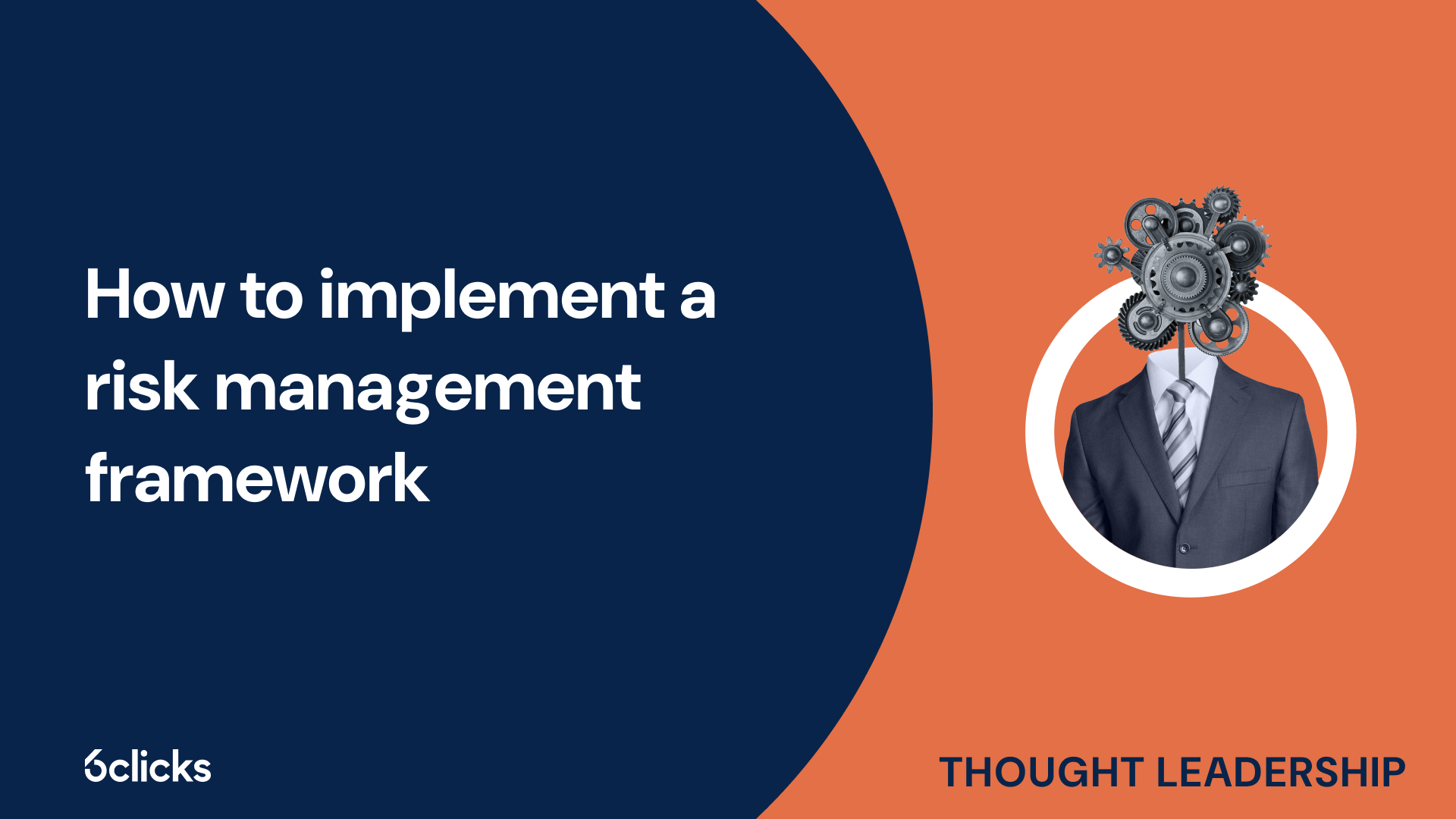The GRC buyer’s guide for 2025: Building resilience with AI-powered, federated solutions
Discover the ultimate GRC buyer's guide for 2025! Uncover how AI-powered, federated solutions transform compliance and security management for industries like government, aerospace, banking, and more. Learn about centralized control, continuous compliance, and advanced cyber GRC capabilities. Download now!
-1.png?width=200&height=249&name=Group%20193%20(1)-1.png)
The GRC buyer’s guide for 2025: Building resilience with AI-powered, federated solutions
What is an IRAP assessment?
An IRAP (Information Security Registered Assessors Program) assessment is a security evaluation conducted under the Australian Government's framework to ensure information systems meet the required standards for handling sensitive data. Managed by the Australian Signals Directorate (ASD), the program involves certified assessors reviewing an organization's compliance with the Australian Government Information Security Manual (ISM). IRAP assessments are commonly used for cloud services, critical infrastructure, and government-related systems to ensure robust security measures are in place.
What is the purpose of an IRAP assessment?
The purpose of an IRAP assessment includes:
- Ensuring compliance: Confirms that an organization’s systems and processes meet the security requirements of the Australian Government Information Security Manual (ISM).
- Protecting sensitive data: Evaluates the security controls in place to safeguard government or classified information from unauthorized access and cyber threats.
- Identifying vulnerabilities: Highlights weaknesses in systems, processes, and architecture, providing actionable insights for improvement.
- Building trust: Demonstrates to government agencies and other stakeholders that the organization maintains a robust security posture.
- Facilitating government engagement: Acts as a critical requirement for organizations seeking to provide services to Australian government agencies or operate in highly regulated industries.
- Strengthening cybersecurity: Recommends enhanced measures to improve resilience against evolving cyber risks and threats.
- Supporting cloud security: Assesses the suitability of cloud services and infrastructure for hosting government data.
An IRAP assessment not only verifies compliance but also helps organizations enhance their overall security framework, ensuring alignment with Australian government standards.
Types of IRAP assessments
1. Preliminary assessment
- Purpose: Identifies gaps between the current security posture and the requirements of the Australian Government Information Security Manual (ISM).
- Scope: Focuses on reviewing system documentation, security policies, and processes.
- Outcome: Provides recommendations for remediation, helping organizations prepare for formal certification.
2. Certification assessment
- Purpose: A formal, comprehensive review of implemented security controls to determine compliance with ISM standards.
- Scope: Includes in-depth testing and verification of technical controls, architecture, and operational processes.
- Outcome: Results in an assessment report used by government agencies to decide whether the system is suitable for handling sensitive data.
3. Reassessment (Ongoing compliance)
- Purpose: Ensures the organization maintains compliance over time, especially after changes to the system or ISM updates.
- Scope: Focused on validating previously certified systems and addressing new risks or vulnerabilities.
- Outcome: Confirms sustained alignment with security requirements.
4. Targeted (Focused) assessment
- Purpose: Evaluates specific system components, security updates, or changes, such as new software deployments or infrastructure adjustments.
- Scope: Narrowed to address particular areas of concern or new ISM requirements.
- Outcome: Provides assurance on the security of updated elements without requiring a full system review.
These assessment types cater to various stages of compliance, from initial gap identification to certification and ongoing security assurance.
Benefits of an IRAP assessment
An IRAP assessment offers numerous benefits for organizations, particularly those handling sensitive or classified data. Key benefits include:
1. Compliance assurance
- Verifies alignment with the Australian Government Information Security Manual (ISM) and other regulatory requirements.
- Provides the necessary certification to work with government agencies or manage sensitive data.
2. Improved security posture
- Identifies vulnerabilities and gaps in existing security controls.
- Offers recommendations to strengthen cybersecurity measures, reducing the risk of breaches.
3. Enhanced trust and credibility
- Builds confidence with government agencies, partners, and stakeholders by demonstrating a robust commitment to security.
- Helps establish the organization as a trusted provider in highly regulated industries.
4. Competitive advantage
- Enables organizations to qualify for government contracts and projects that require certified compliance with ISM standards.
- Differentiates the organization in the market as a secure and compliant service provider.
5. Support for cloud adoption
- Ensures cloud services and infrastructure are secure and compliant, enabling safe data storage and processing.
6. Risk mitigation
- Proactively addresses security risks, minimizing the likelihood of incidents such as data breaches or cyberattacks.
- Supports a culture of continuous improvement in security practices.
7. Guidance and expertise
- Provides access to expert advice from certified IRAP assessors who guide the organization through the compliance process.
- Helps organizations interpret ISM requirements and implement effective controls.
By undergoing an IRAP assessment, organizations not only meet mandatory requirements but also enhance their overall security resilience and market opportunities.
How to get started with an IRAP assessment
To get started with an IRAP assessment, follow these steps:
1. Understand your requirements
- Identify why you need an IRAP assessment (e.g., to meet government compliance, improve security, or qualify for specific contracts).
- Determine the scope of the assessment, including the systems, applications, and data that require evaluation.
2. Familiarize yourself with the ISM
- Review the Australian Government Information Security Manual (ISM) to understand the security controls and requirements relevant to your organization.
3. Engage a certified IRAP assessor
- Select an ASD-certified IRAP assessor with expertise in your industry or system type.
- Ensure the assessor has experience with systems of similar complexity or regulatory requirements.
4. Conduct a preliminary assessment
- Begin with a gap analysis to identify areas of non-compliance and opportunities for improvement.
- Use the findings to address security vulnerabilities and implement necessary controls.
5. Prepare documentation
- Compile all relevant security documentation, including policies, procedures, system architecture, and risk assessments.
- Ensure that evidence of implemented controls is ready for review.
6. Perform the certification assessment
- Work with the IRAP assessor to complete a comprehensive review of your systems and processes.
- Address any findings or recommendations provided during the assessment.
7. Implement recommendations
- Resolve identified issues and strengthen your security controls based on the assessor’s guidance.
- Ensure compliance with all ISM requirements.
8. Maintain compliance
- Periodically review and update your systems and processes to stay compliant with evolving ISM standards.
- Schedule reassessments or focused reviews as needed to accommodate system changes or new requirements.
Starting an IRAP assessment involves careful planning, engaging the right expertise, and committing to a culture of continuous improvement in security and compliance.
How to leverage Hailey AI for IRAP assessments
Summary
An IRAP (Information Security Registered Assessors Program) assessment is a structured security evaluation conducted under the Australian Government’s framework to ensure compliance with the Australian Government Information Security Manual (ISM). It is designed to protect sensitive or classified data by identifying vulnerabilities, improving security controls, and strengthening an organization’s overall cybersecurity posture. Organizations can undergo different types of IRAP assessments, including preliminary, certification, reassessment, and targeted reviews, depending on their compliance needs. These assessments offer numerous benefits, such as enhanced trust, competitive advantage, and support for secure cloud adoption. To get started, organizations should define their requirements, engage a certified IRAP assessor, conduct a preliminary gap analysis, and prepare for a certification review to achieve and maintain compliance.









